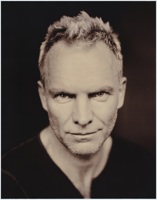Mother of Iranian-American scholar urges release (Source: Associated Press)
“WASHINGTON – The mother of an Iranian-American scholar facing espionage charges in Tehran is urging the Iranian government to release her son.Speaking by phone from Tehran, Farideh Gueramy (FAH’-rih-day GUHR’-ah-mee) said Tuesday that the government has not clarified the legal grounds on which her son, Kian Tajbakhsh (KEE’-ahn TAZH’-bahdzh), has been charged. She says he is innocent.
“The problem is that we really don’t have any clear information,” Gueramy said.
Gueramy said that the family recently hired prominent Iranian lawyer, Masoud Shafie, to represent Tajbakhsh. Family members, including Tajbakhsh’s wife and two-year-old daughter, have been able to visit him about once a week in prison.
Tajbakhsh has already been sentenced to 15 years in prison on spying charges. But new espionage charges were brought this month raising the possibility of a harsher penalty.
Tajbakhsh was writing a book when he was arrested five months ago amid security forces’ crackdown following June’s disputed presidential election. He was among more than 100 people — most of them opposition activists and protesters — brought before a court in a mass trial criticized by the opposition and rights groups as ashow trial.
Last week, Tajbakhsh was brought before another branch of the Revolutionary Court that the elite Revolutionary Guard military corps has used to pursue dissidents, and he was charged with additional counts of espionage, the New York-based International Campaign for Human Rights in Iran said in a statement.
His family denies that he was involved in the postelection protests.
“He hasn’t done anything. He was at his home writing books,” Gueramy said. “I hope they realize that and let him go home to his two-year-old baby.”
 Sting makes appeal for Kian Tajbakhsh and Iranian detainees.
Sting makes appeal for Kian Tajbakhsh and Iranian detainees.